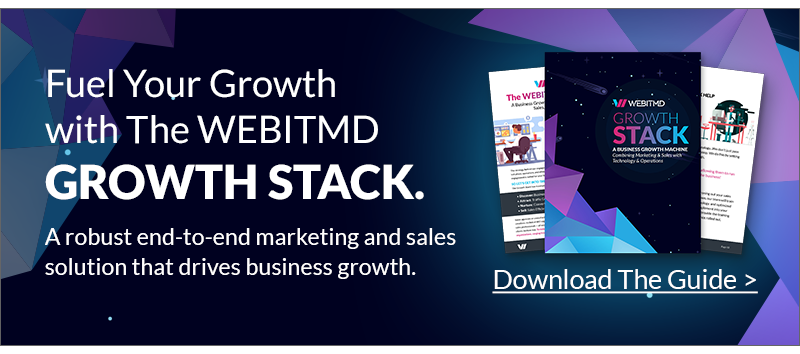You have likely heard the philosophical question, if a tree falls in the woods and there is nobody to hear it, does it make a sound? When it comes to growing your business, if growth marketing agencies aren’t tracking sales metrics and measuring the effectiveness of your strategy, can you even manage your growth?
Metrics may not be at the pinnacle of importance in every aspect of business, but when it comes to sales, they are absolutely crucial. Without tracking sales metrics, department managers can’t use their abilities to make good informed decisions when dealing with massive amounts of information, thus creating a high likelihood of failure. For this factor alone, top organizations partner with the best growth marketing agencies with sales enablement teams to learn about the necessary tech tools needed to collect and read data, and learn how to train their internal teams on how to determine the metrics that matter, and how to measure them.
What are Sales Metrics, and How Many Types are There?
First, let’s be clear. When we talk about “sales metrics”, we are referring to data points that reflect a team’s, individual’s or their company’s performance. Sales managers use such metrics to monitor progress towards achieving goals, to alter sales compensation, prepare for upcoming growth, pinpoint problem areas with sales targets and plans before they come to fruition, and award sales team members with bonuses and incentives. As for types of sales metrics and which ones need to be tracked, the most important ones include the following:
- SaaS metrics
- Leading indicators
- Hiring and onboarding metrics
- Marketing channel sales metrics
- Sales outreach metrics
- Pipeline sales metrics
- Sales KPIs
- Lagging indicators
- Sales process
- Sales tools
- Training adoption metrics
- Sales productivity metrics
- Sales conversion metrics
- Lead generation metrics
- Activity sales metrics
Indeed there are a number metrics to track, measure, and analyze. And unless you have a highly experienced team of 20 or more sales reps and managers, or you have experts trained to use expensive marketing technology platforms, you can get great results from partnering with a growth marketing agency that knows how to streamline the sales process, and that knows what data matters, and how to analyze it within an agile, growth-driven framework.
What Sales KPIs Should Growth Marketing Agencies Focus On?
In order for growth marketing agencies to accurately measure company-wide performance, there are specific KPIs to track and measure. First of all, total revenue and earnings at the product level or product line are critical. Also, market percentage and the percentage from new business relationships are important. Then there is the percentage of revenue via cross-selling, upselling, expanded contracts and repeat orders within your cohort of existing customers. Tracking year-over-year growth and the average lifetime value of customers is also of great importance. You should also focus on revenue by market and territories, net promoter scores, and the number of deals lost to competitors. Finally, be sure to understand your cost of selling as a percentage of generated revenue. When you partner with growth marketing agencies with the goal to increase sales, their team can work with yours to establish sales KPIs, and the right strategies and technology pieces can then be customized to increase performance and help you achieve year-over-year revenue increases.
Sales Metrics at the Activity Level
It is important for management to know what salespeople are doing on a day-to-day basis. Activity metrics are easy to manage, and there is a great opportunity for sales managers to directly influence their teams. Here is an example: let’s say one of your sales reps isn’t hitting his quota. After doing some research you discover he is not sending enough emails or making enough phone calls to qualified leads. You may not have a direct impact on how much revenue that person brings in, but you do have a hand in increasing his daily email output. The common activity metrics you should concern yourself with encompass the following:
- Number of sent emails
- Call volume
- Number of social media engagements
- How many conversations are had
- Volume of demos or sales presentations
- Conversion volume
- How many referrals are requested
- Volume of set meetings
- How many proposals / offers were sent
These are all leading indicators for activity-based sales metrics that help leadership predict overall results.
Want to Learn More About Tracking and Measuring the Right Sales Metrics?
Part two of this article will go live next week. There, we will explore lead generation metrics, sales pipeline metrics, outreach, email, social media, phone call metrics, hiring metrics, sales productivity metrics, and much more. In the meantime, DOWNLOAD OUR FREE GUIDE on the WEBITMD Growth Stack and see how we use a multi-channel approach, with the best marketing and sales tools in the industry, to help our clients his their revenue targets. Give the guide a read, see how it fits your business model, and give us a call to go over the various approaches to increasing your sales. Together, we will nail down the right custom approach for your specific needs.








.jpg)



.jpg)





![5 Reports to Elevate Your HubSpot Sales Dashboard [+ Examples]](https://blog.webitmd.com/hs-fs/hubfs/Imported_Blog_Media/6-winning-examples-of-a-hubspot-sales-dashboard-2.png?width=767&name=6-winning-examples-of-a-hubspot-sales-dashboard-2.png)